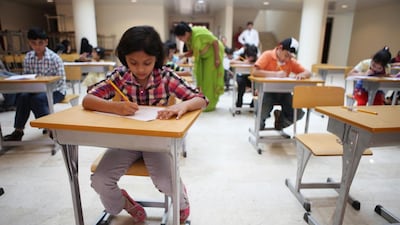Serious questions are raised by the study that showed an overwhelmingly higher proportion of boys than girls resorted to cheating during a mock exam. The study, published by the Sheikh Saud bin Saqr Al Qasimi Foundation for Policy Research, found 82 per cent of boys cheated, compared to only 12 per cent of girls.
One immediate question is how closely this result matches the reality in our schools because the sample size was a mere 172 students at two single-sex public high schools. The methodology of the study is also questionable because it almost encouraged them to cheat in the quiz by telling them the answers were on the other side of the exam paper.
But despite these concerns, the study has identified a culture of toleration towards cheating that warrants further examination. An unrelated local study that focused on roughly 2,000 university-level students found that about 80 per cent of them admitted to cheating. The two most popular methods were copying their peers’ work and submitting it as their own or paying someone to write their essays for them or take their exams.
Although cheating is a worldwide scourge rather than simply an issue restricted to the UAE, we still need to ask what factors drive this behaviour. Is it the education system – including the methods of examination – or the individuals that we need to address?
This issue warrants being addressed at its root causes. While a high school student who cheats will end up being less proficient at trigonometry or physics, continuing that practice at graduate level will render them incapable of conducting their professional tasks competently and accurately, with clear risks to the public. This is why a zero-tolerance policy has to be adopted at school level and beyond. Teachers must never turn a blind eye.
Another way to address this issue is to have a more diversified education system. The study also found that diversity – among mixed groups of Arab expatriates and Emiratis – drives more ethical judgment, as well as creativity, innovation and better problem-solving techniques.

